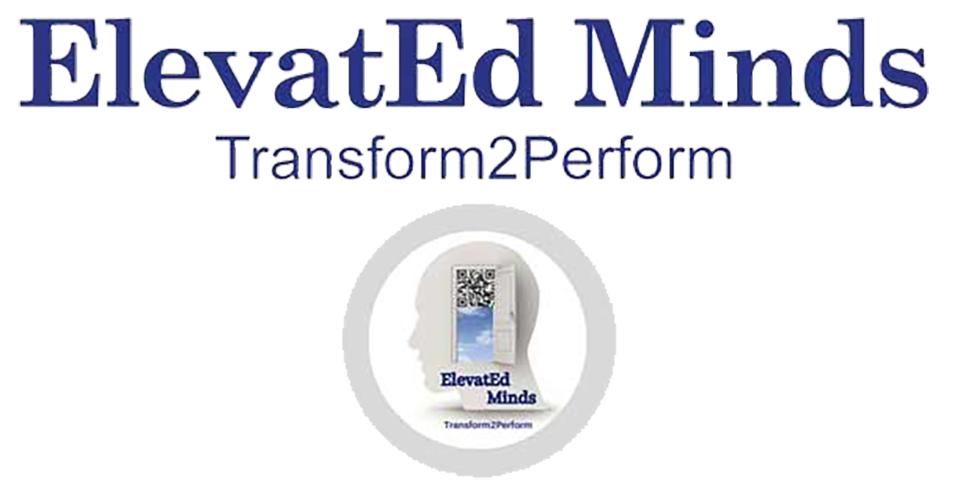Explore
Subconscious Mind

Credentials:
A licensed RTT (Hypnotherapy called Rapid Transformational Therapy) Practitioner trained by Marisa Peer School
RTT Masterminds
Business Mentor trained by Alex Mandossian
A licensed HeartMath Practitioner including clinical certification for stress, anxiety and self-regulation
Diplomas in spirituality and a certified law of attraction practitioner by Dr. Joe Vitale including the art of forgiveness (Ho'oponopono)
Qualified Teacher of three decades experience including middle management and training
Teaching Self-Esteem to achieve sustainable SUCCESS in all areas of life
Teaching Intuition and Empathy
Teaching Emotional Intelligence
Teaching how NOT to live life
Teaching the dangers of BURNOUT
THERE IS HOPE
What is the Subconscious Mind?
We all look for hope, and we keep chasing hope in the hope that someone gives us the answers. Once we have found hope we would not know it because we are programmed to look for hope.
In other words, even if we have found hope we would not necessarily recognize it. Because we simply are conditioned to look for hope. Maybe this person has the answer or maybe this is the answer. Maybe the other is the answer.
And so we continue our journey of finding hope to find that you become hope.
Only when you are willing to look HOPE in the eye, you recognize hope. Hope looks at you daily.
It is called looking in the mirror.
Our subconscious mind is unconscious. Thoughts, emotions, memories, beliefs, and wants shape our behaviour, perceptions, and experiences.
The subconscious mind processes massive volumes of information and performs automatic activities. It stores our memories, habits, and routines. It shapes our ideas, attitudes, and actions.
Our subconscious mind shapes our world and affects our relationships, self-esteem, health, and success. Our mind's powerhouse discreetly filters and processes information to support our conscious experiences.


The subconscious regulates ideas and perceptions. It supports our preconceived notions. Thus, if we have negative or restrictive views about ourselves or the world, our subconscious mind may undermine our objectives or good improvements.
For example:
If you grew up with people having negative views about life, this will have rubbed off you or you will have been conditioned or it will have influenced your own view about yourself and life. In other words, you live a lie.
The
subconscious influences creativity, problem-solving, and intuition. Connecting apparently unconnected concepts and facts can spark new ideas and insights. Many artists, authors, and scientists credit their subconscious minds for their breakthroughs and discoveries.
Hypnosis, meditation, visualisation, and affirmations can reach and alter the subconscious mind. Programming good beliefs and recommendations into the subconscious may change our thoughts, behaviours, and lifestyles.
The subconscious mind influences our ideas and behaviours, but it's not perfect. Repetition and purposeful effort can change it. By being aware of our subconscious habits and actively changing them, we may use the subconscious mind to build a more satisfying and successful existence.
THERE IS HOPE
Facts about Hypnosis

Hypnosis is a trance-like condition of focused concentration and suggestibility. Hypnotists or self hypnosis cause it. Hypnosis is utilised for therapy, entertainment, and self-improvement.
Hypnosis relaxes and focuses people. The hypnotist or self-hypnosis makes the person more receptive to ideas. Hypnotists employ mental images, calming verbal cues, and gradual relaxation to produce hypnosis.
In hypnosis, people may focus more on the hypnotist's ideas. These tips can help relax, reduce anxiety, manage discomfort, or change habits. Hypnosis can make some people more receptive to recommendations than others. However, the hypnotist does not control the subject's ideas or behaviours, and the individual always retains
their ethical and moral bounds.
Hypnosis processes are unknown. However, brain activity and awareness alterations are suspected. Hypnosis can promote inventiveness, detachment, and introspection.
Hypnosis must be distinguished from stage hypnosis and hypnotherapy. Stage hypnosis involves audience volunteers performing comic or dramatic actions under hypnosis. However, qualified experts utilise hypnosis to assist people overcome phobias, stress, and undesired behaviours.
Hypnosis has become a supplemental therapy in health and psychology, with some research showing its efficacy. Hypnosis should be used with caution and under the supervision of a skilled expert because it may not work for everyone.

THERE IS HOPE
Rapid Transformational Therapy (RTT)

Rapid Transformational Therapy (RTT) is a therapeutic approach developed by renowned therapist Marisa Peer. It combines various techniques from different fields of therapy, such as hypnotherapy, psychotherapy, cognitive-behavioural therapy (CBT), and neuro-linguistic programming (NLP), to
facilitate quick and lasting changes in individuals.
RTT aims to identify the root causes of emotional and behavioural patterns, beliefs, and issues that may be holding individuals back from living fulfilling lives. It operates on the belief that our subconscious mind plays a significant role in shaping our thoughts, emotions, and behaviours. By accessing and reprogramming the subconscious mind, RTT aims to bring about profound transformations in a relatively short period.
The therapy process typically involves several stages:
Initial Assessment: The therapist and client engage in a conversation to explore the client's issues, goals, and background information. This helps establish a foundation for
the subsequent therapy sessions.
Hypnosis: RTT utilizes hypnosis as a means to access the subconscious mind. The client is guided into a relaxed state
where the conscious mind takes a step back, allowing direct communication with the subconscious. During this stage, the therapist helps the client uncover the root causes of their challenges.
Regression: Through regression techniques, the therapist guides the client to revisit past experiences and events that may have contributed to their current issues. By understanding the origins of negative beliefs or patterns, the client gains insights and emotional release, which paves the way for transformation.
Rewiring and Reprogramming: Once the root causes have
been identified, RTT focuses on reprogramming the
subconscious mind. The therapist uses a range of techniques, such as positive suggestions, reframing beliefs, and visualization, to create new neural pathways and replace old, limiting patterns with empowering ones.
Integration and Reinforcement: After the rewiring process, the therapist works with the client to reinforce the positive changes and ensure their integration into everyday life. This
may involve personalized recordings, daily practices, and follow-up sessions to support long-term transformation.


Rapid Transformational Therapy has gained popularity for its ability to produce significant shifts and breakthroughs in a relatively short time frame. It can be applied to a wide range of issues, including but not limited to anxiety, phobias, low self-esteem, relationship challenges, addictions, weight management, and performance improvement. However, it's important to note that RTT, like any therapy, may not work the same way for everyone, and individual results may vary.
THERE IS HOPE
Ego State Intervention
Putting the jigsaw pieces in the right places

Ego state therapy, also known as parts therapy or ego state therapy, is a therapeutic approach that focuses on understanding and working with different aspects or "parts" of a person's personality, also referred to as ego states. It is based on the belief that individuals have multiple, distinct ego states or subpersonalities within them, each with its own unique thoughts, feelings, and behaviors.
According to ego state theory, these ego states develop as a result of various life experiences, such as traumatic events, and they serve as adaptive mechanisms to cope with those experiences. For example, a person may have an ego state that
developed in response to a past traumatic event, which continues to influence their thoughts, emotions, and in the present.

In ego state therapy, the therapist helps the individual identify and understand their different ego states and the roles they play in their life. The therapist facilitates communication and interaction between these ego states, allowing them to express their concerns, needs, and perspectives. This often involves a form of guided visualization or hypnosis to access and engage with the different ego states.
The goal of ego state therapy is to promote integration and harmony among these ego states, enabling the individual to develop a more coherent and unified sense of self. By recognizing and addressing conflicting or disruptive ego states, the therapy aims to reduce internal conflicts, enhance self-awareness, and facilitate personal
growth and healing.
Ego state therapy is commonly used in the treatment of various psychological issues, including trauma-related disorders, anxiety, depression, addiction, and relationship difficulties. It can be integrated with other therapeutic modalities, such as cognitive-behavioral therapy (CBT), psychodynamic therapy, or trauma-focused approaches, to provide a comprehensive and individualized treatment approach.
It's important to note that while ego state therapy can be highly effective for many individuals, its application and outcomes may vary depending on the specific needs and circumstances of each person.

THERE IS HOPE
HeartMath

HeartMath is a system of techniques and technologies developed by the HeartMath Institute that focuses on the relationship between the heart and the brain, and how this connection can be harnessed to promote emotional well-being, resilience, and optimal performance. The core principle of HeartMath is that the heart, in addition to its role as a vital organ for pumping blood, also plays a significant role in our emotional and mental processes.
The HeartMath Institute has conducted extensive research into the physiological and psychological aspects of the heart-brain connection. They have found that the heart communicates with the brain and the rest of the body through electrical signals, neurochemicals, and a complex network of nerve pathways. This communication is bidirectional, meaning that the heart sends signals to the brain, influencing our perceptions, thoughts, and emotions, and the brain, in turn, sends signals to the heart that can affect its functioning.

HeartMath techniques aim to optimize the communication between the heart and the brain, leading to improved emotional balance, mental clarity, and overall well-being. The primary technique used in HeartMath is called Heart Coherence, which involves intentionally shifting one's emotional state to a state of coherence or harmony.
Heart Coherence is achieved by engaging in specific breathing patterns and focusing on positive emotions, such as appreciation, gratitude, care, or love. These positive emotions have been found to create a smooth, ordered pattern in the heart's rhythm, known as heart coherence. This coherent heart rhythm is associated with a range of benefits, including reduced stress, improved cognitive function, enhanced emotional stability, and better overall health.

HeartMath provides various tools and technologies to assist individuals in achieving heart coherence. These tools include heart rate variability (HRV) monitors, biofeedback devices, and mobile applications that provide real-time feedback on
heart coherence levels. The feedback helps individuals learn to self-regulate their emotional state and develop a greater awareness of their internal state.
HeartMath techniques and practices have been applied in various settings, including schools, workplaces, and healthcare settings, to help individuals manage stress, improve performance, enhance emotional intelligence, and cultivate resilience. The techniques are relatively simple and can be practised by anyone, regardless of age or background.
It's important to note that while HeartMath has gained popularity and has a growing body of research supporting its effectiveness, some of its claims may still be considered as emerging or not universally accepted within the scientific community. Nevertheless, many individuals have reported positive experiences and benefits from incorporating HeartMath techniques into their daily lives.

Who am I for?

- I am for people who are curious about their own behaviours, psychology and spirituality, and why certain blocks exist in them.
- I am for people who are genuinely interested in living their lives to their full potential by rewiring their subconscious minds.
- I am for people who are tired of wasting any more time searching for the right person. Let's get you your soulmate.
- I am for people who want to create harmony and balance in their relationships whether work or personal.
- I am for people who want it all and who are interested in elevating their minds through education and practices to achieve sustainable success in all areas of life.
- I am for people who want to live life with less stress and hassle.
- I am for people who want to Attract abundance instead of Reject abundance.
- I am for people who want to become leaders or improve their own leadership skills. You are your own leader.
- I am for people who want to live life with healthy self-esteem as this cancels out any self doubt and leads you to a life with less stress.
- I am for people who are tired of living life the hard way.
- I am for people who are deep thinkers and who appreciate deep thinkers.
Lead by example.
Nice to meet you
I'm Cornelia Starke
I am a certified and licensed RTT Practitioner using the tool of hypnosis to find the root cause of your issues. In addition, I am a clinically certified HeartMath Practitioner for The Resilient Heart and anxiety, stress, and emotional self regulation. I also use the tool of Ego State Intervention to help my clients to achieve faster results. I go deep into the unconscious beliefs and through that I help people to become emotionally stable, regulated and have greater resilience within themselves.
My belief and my experiences are that you cannot change if you don't know what to change, and how to change in order to upgrade yourself and your life. All in all, it is an identity shift.
In order to upgrade yourself and your life, it is crucially important to educate the mind on the topics that lead to the upgrade. As an experienced educator, I know the importance of acquiring knowledge and the application of knowledge. We can have knowledge but if we don't use the knowledge, we become vacant. And when we don't feed our minds with new and highly interesting knowledge, we wither away. I offer online courses where you can educate yourself in your own time with no pressure. You receive course books with a lot of activities to keep yourself engaged.
"To relax you need to feel confident. To feel confident you need to know what you're doing."

"I can highly recommend RTT for anyone as it really helps you achieve your dreams with less effort and time because it pushes you out of your comfort zone."
- Ilmi Dissanayake
What Educational Courses are Available
Live Life & Stress Less
StressLess is linked to a healthier and happier life. StressLess is needed in all areas of life. StressLess is easily accessable and you can learn on the go. StressLess is a skill. Confidence is linked to StressLess, first I explain the meaning of confidence. I do NOT teach arrogance. Learn about the ingredients of self-confidence that comes from the heart and is not manufactured leading to long-lasting success with less stress. This is a winner.
What you'll get:
-
Module teachings understanding the ingredients for self-confidence
-
you get additional resources like transformational recordings you can listen to at your own convenience when in a safe place
-
you get a coursebook with the StressLess course that contains exercises to understand your inner blocks
Emotional Intelligence - A Skill for Life
"Leading with intuition makes you quicker and more accurate. As an entrepreneur or business leader, this can be an invaluable skill. But it's important to highlight that data, processes and facts also have their place. The best results tend to come when intuition complements the hard evidence." (Entrepreneur Magazine)
What you'll get:
- an understanding of intuition and empathy
- how intuition and empathy are highly sought traits in business making it a lot easier for yourself by having less stress
- work becomes bliss and pure joy
- you connect with your heart and to combine it with your cognitive intelligence learning about critical thinking levels and types of intelligence
- you are on your road to lasting success without any hassle and you are able to spend more time with your loved ones - wouldn't it be dreadful if your children said: "Well, I had parents but they were always busy and did not have time for us!" "He or she was never around because they always worked." This can be avoided as I am sure you felt the same when you were a child. No one had time for you?
- how to create harmony within yourself by understanding your triggers that lead to emotional anger or even rage in some cases and the negative consequences for promotion including being a negative leader
- how you are connected to people no matter where they are in the world by heart
- Disclaimer: The personal success of the course depends solely on each participant as I am not responsible for your commitment nor your self-doubt. The results I have shared are my personal results due to my own diligence and curiosity and evolution. I have gone through a lot of training personally. My successes came from my own inner dedication and life experiences. If you are not willing to accept the disclaimer, please do not enrol and do not get this training.


